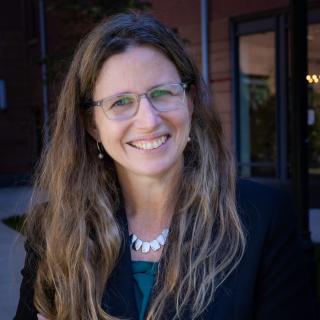What Can Colombia Teach Us About Early Education?
October 28, 2010
So much of what we know about the effects of early childhood education is based on research conducted in North America where we have been fortunate enough to have studies like those conducted on the Perry Preschool Program. Of course, repeating the Perry study 40 years later would be difficult if not impossible here in the U.S. That’s because over the decades out-of-home child care and preschool have become so prevalent that any large sample of children against which researchers compare the early education treatment is far less likely to have attended no type of early childhood program. This complicates matters when measuring the true effects of access to quality preschool since it is difficult to gauge to what extent the “impure” control group affects the outcome.
That isn’t the case in Colombia where I grew up. There, preschool education as we in the U.S. have come to know it is far less prevalent. Colombia has about 4.9 million children under age 5 and sadly only 30 percent of these receive early childhood services. Currently, Colombia is experiencing a large, smooth expansion of its early childhood provision, increasing access and/or quality through public provision and through public-private partnerships. This makes Colombia a good place for conducting high-quality randomized studies, working with larger samples of children than the Perry researchers had at their disposal, and for impacting early childhood development (ECD) policy and growth in access through such research.
At NIEER we have begun a randomized study in partnership with AeioTU, a well-regarded preschool program whose mission is providing high-quality early education to children in poverty. Working with a sample of about 1,200 children in two sites, our research team will investigate child growth and development in the cognitive, socio-emotional and health areas. Over time, we will estimate children’s outcomes at primary school entry and throughout primary and secondary school, and program cost-effectiveness. We believe the results will not only update the field in terms of the impact of high-quality ECD, but also be relevant for ECD policies being implemented all over the region. Our project now counts on the collaboration of Los Andes, a leading university in Colombia and a wonderful local PI, Dr. Raquel Bernal, as well as the Jacobs Foundation in Switzerland and the Inter-American Development Bank.
NIEER co-director Steve Barnett and I recently visited the AeioTU centers participating in the study, and met with our local evaluation team to assess solutions to issues that have arisen in the fieldwork. To say the Colombians are enthusiastic about the study would be an understatement. The presentation we did on the study was profiled in leading newspapers in Colombia. In addition, we are able to count on wonderful support from community leaders, local government, and the national government. In Santa Marta, one of the cities where we gave our presentation, the mayor presented Steve with the keys to the city!
Milagros Nores
Principal Investigator
Assistant Research Professor, NIEER
The Authors
Dr. Milagros Nores is the Co-Director for Research and Research Professor at the National Institute for Early Education Research (NIEER). With a profound expertise in early childhood evaluation, informing data-driven policy and programming, cost and benefits of early interventions, evaluation design, equity, and English language learners, she has established herself as a leading researcher in the field of early care and education.
About NIEER
The National Institute for Early Education Research (NIEER) at the Graduate School of Education, Rutgers University, New Brunswick, NJ, conducts and disseminates independent research and analysis to inform early childhood education policy.

